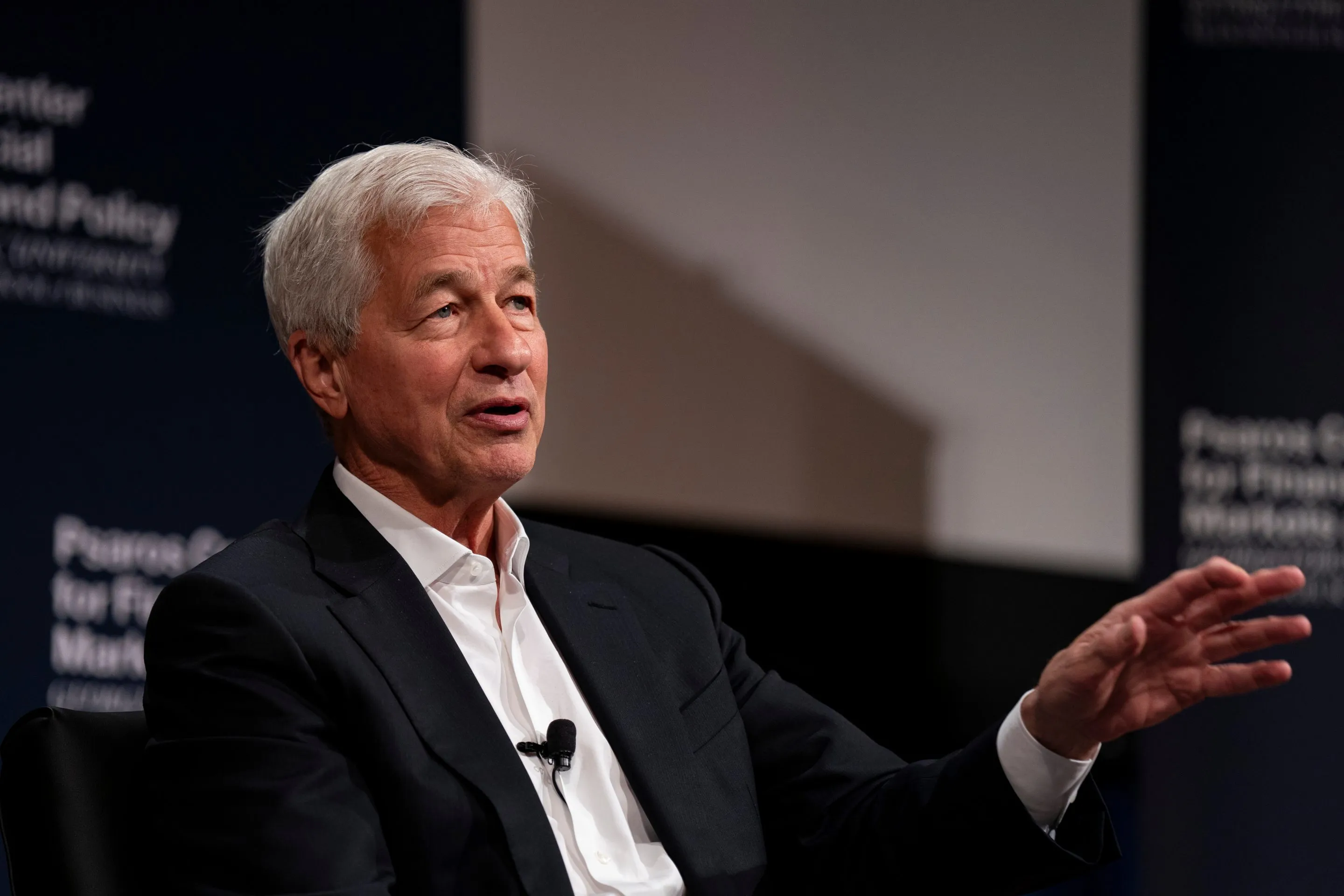US-China tensions have been a significant driver of change in the global economic landscape, and according to JPMorgan Chase & Co CEO Jamie Dimon, this geopolitical conflict presents a substantial opportunity for India.
In an interview with CNBC-TV18, Dimon highlighted how the intensifying strain between the two superpowers has raised concerns about overreliance on China for critical resources, thus prompting a shift in global trade strategies.
The Impact of US-China Tensions on Global Trade
The ongoing US-China tensions have dramatically reshaped global trade patterns, with the United States increasingly wary of its dependence on China. Dimon emphasized that the US has relied heavily on China for essential materials like rare earths, semiconductors, and pharmaceutical ingredients.
Read : Shanwei Zoo of China Admits Its Pandas Are Painted Dogs: Watch
This overdependence, especially in areas critical to national security and technological advancement, has heightened risks for the US. The supply chain disruptions caused by the COVID-19 pandemic and geopolitical conflicts have brought these vulnerabilities into sharper focus.
The intensification of US-China tensions over trade policies, intellectual property rights, and political disagreements has only exacerbated the situation. As companies look to reduce their reliance on China, the concept of a “China +1” strategy has gained prominence.
Read : The List of Top 20 Countries in Debt to China
This strategy, whereby companies maintain operations in China but seek additional manufacturing bases in other countries, has positioned India as a major beneficiary. The US-China tensions provide India with a rare opportunity to enhance its role in the global supply chain, attracting investment from multinational companies seeking to diversify their operations.
India and the “China +1” Strategy
India’s potential to capitalize on US-China tensions has been amplified by the growing adoption of the “China +1” strategy. As companies seek alternatives to their China-centric supply chains, India, with its large and skilled workforce, robust technology sector, and improving infrastructure, has become an attractive destination.

Dimon highlighted this point, noting that India’s opportunity in the current geopolitical climate is substantial, but the transition will take time.
The process of shifting production and supply chains from China to India is complex and will require several years to fully materialize. “It has just started,” Dimon said, referring to the gradual relocation of operations.
He mentioned that industries such as electronics, particularly iPhone manufacturing, have already begun to establish a foothold in India. However, this shift is not limited to technology; other sectors, including pharmaceuticals and textiles, are also eyeing India as a prime location for expansion.
While India stands to benefit greatly from the US-China tensions, Dimon cautioned that this transition would take anywhere from 5 to 15 years to fully unfold.
Despite the long timeline, the move toward diversifying supply chains is underway, and India’s proactive policies to attract foreign investment will play a key role in accelerating the process. This presents a golden opportunity for India to assert itself as a global manufacturing hub, lessening the world’s reliance on China.
Geopolitical Conflicts and Their Influence on US-China Relations
US-China tensions are not only rooted in trade and economic policies but are also being shaped by broader geopolitical conflicts. Jamie Dimon pointed out that ongoing conflicts, such as the war in Ukraine, tensions between Israel and Iran, and Russia’s aggressions, further complicate US-China relations.

These conflicts have pitted China and the US on opposite sides of many global issues, raising concerns about future cooperation between the two powers.
As the US seeks to align its foreign policy with its allies and counter China’s growing influence, the tensions are likely to persist or even worsen. Dimon speculated that more contentious issues between the US and China will arise if these conflicts continue, further driving the need for the US to diversify its supply chains.
For India, this geopolitical environment enhances the appeal of becoming a strategic partner to the US and other Western nations.
The broader global context, marked by diplomatic standoffs and security concerns, adds another layer of complexity to US-China tensions. India’s strategic position in Asia, along with its growing economic capabilities, allows it to act as a counterweight to China’s influence.
This shifting landscape positions India as a key player in the evolving global order, offering it a unique chance to strengthen its relationships with Western nations while expanding its economic reach.

The escalating US-China tensions are reshaping the world’s economic and political landscape, creating both challenges and opportunities. For India, these tensions present an unprecedented chance to emerge as a key player in the global supply chain, benefiting from the diversification efforts of multinational corporations.
As Jamie Dimon pointed out, the transition will be gradual, taking several years, but the foundations for India to capitalize on this shift are already being laid.
India’s potential to benefit from the “China +1” strategy is immense, as companies seek to reduce their dependence on China and establish alternative production bases.
With its large workforce, improving infrastructure, and growing influence on the world stage, India is poised to become a global manufacturing powerhouse. Additionally, the broader geopolitical conflicts further fuel the US-China tensions, making the diversification of supply chains all the more urgent.
As the world navigates these changing dynamics, India’s strategic position will continue to strengthen, allowing it to harness the opportunities arising from US-China tensions. In this new era of economic competition and geopolitical realignment, India has the chance to solidify its role as a global leader, ensuring long-term growth and stability.

